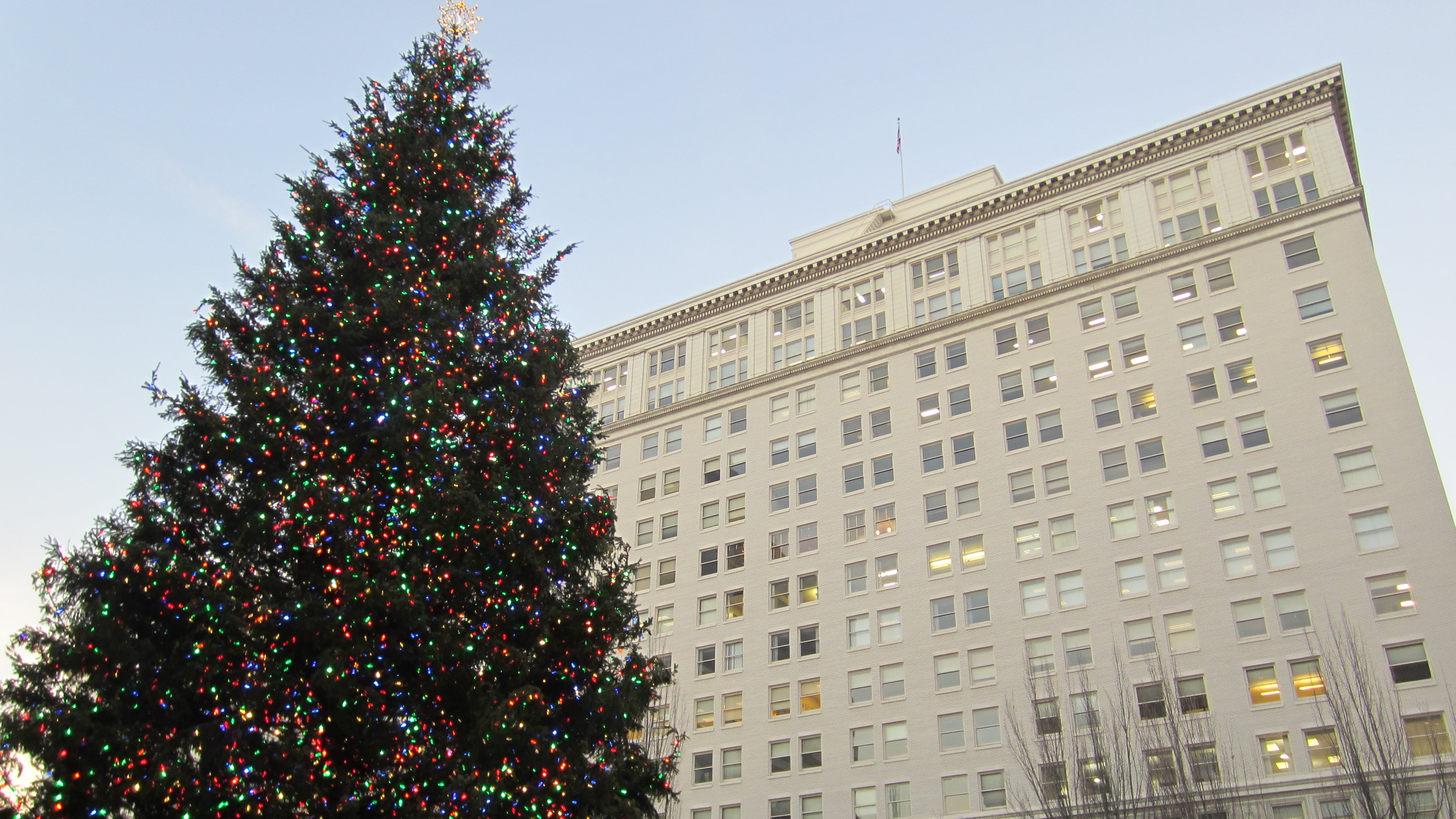Shouldn't we abandon the tradition of the Pioneer Courthouse Square Christmas tree? In this age of climate change, it seems we should be protecting big, old trees, not cutting them down to be short-term decorations. And what happens to the tree after it's taken down? —Jenny B.
And we wonder why all those people in Arkansas hate us. I know you mean well, Jenny, but America is never going to heal as a nation as long as people like you and me keep telling regular Americans they need to ditch the Christmas tree and start singing "O Tannenbaum" to a giant earthenware crock filled with quinoa.
It's not that we don't need trees. Trees are great! But the Pioneer Square tree—majestic as it is—is one tree, out of roughly 5 billion cut down worldwide annually. Meanwhile, by a conservative estimate, 8 million of those same trees die each year to make the United States' annual supply of junk mail. You have to ask yourself: Is this a hill I want to die on?
Also, the Pioneer Square tree, donated by an Oregon timber company, is a farmed tree. It was grown using practices generally considered sustainable—at least in theory, it's carbon neutral.
In practice, it's not clear the increased biomass of still-growing trees exactly balances the biomass lost in the timber harvest. Still, this isn't the Amazon basin, where land that used to host carbon-eating trees is being converted into land that hosts methane-farting cows. We're not permanently losing forests.
To answer your other question, after the tree is taken down, it's recycled in various public relations-friendly ways. In past years, these have included having the wood milled into lumber and donated to Habitat for Humanity, or turning it over to Portland Public Schools for use in wood-shop classes.
Sure, it would be nice if nobody ever had to cut down a tree. But we're people, we need stuff. Making that stuff out of (hopefully) conscientiously replanted trees is a pretty good option, given that the alternative is making it out of plastic or leather or ground-up baby pandas. Until we become Silver Surfer-like beings of pure energy with no material needs, it's probably our best bet.

